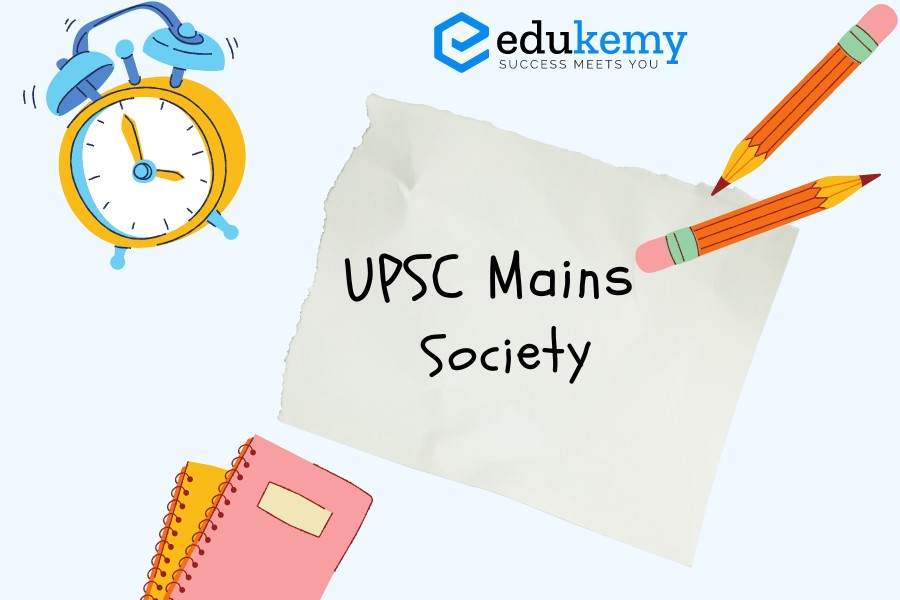
Introduction:
Regionalism is the promotion and advocacy of regional interests, identity, and priorities within a larger political entity, such as a nation. It encompasses efforts to address the specific needs of a particular geographic area, spanning cultural preservation, economic development, and demands for increased political autonomy.
Body:
Understanding Regionalism:
- Promotion of Regional Interests: Regionalism involves advocating for the interests and priorities of a specific geographic area within a larger political entity. For example, the Bundelkhand region seeks tailored infrastructure and policies to address agricultural and water resource challenges.
- Cultural Emphasis: It often includes preserving and celebrating the unique cultural, linguistic, and historical characteristics of a region. Tamil regionalism in Tamil Nadu, for instance, aims to safeguard and promote Tamil language, culture, and heritage.
- Economic Development: Regionalism may focus on local economic growth, utilizing regional resources and industries. The “Gujarat Model” in Gujarat prioritizes industry, infrastructure, and investments for economic advancement.
- Political Autonomy: Regionalism can manifest as demands for increased political autonomy, from devolution of powers to secessionist movements. The Telangana statehood demand exemplifies regionalism seeking greater self-governance through state formation.
Yes, India’s federal polity has been successful in addressing issues of regionalism:
- Fifth Schedule and Sixth Schedule grant autonomy to scheduled areas and tribes. The linguistic Reorganisation of States facilitated by the States Reorganisation Act of 1956 created linguistic states for cohesive administration, resolving linguistic and cultural differences.
- Three Language Formula promotes linguistic diversity, and special grants are allocated for underdeveloped states. Federal institutions like the Inter-State Council, NITI Aayog, and GST Council contribute to cooperative decision-making.
- The formation of new states like Telangana (2014) and Uttarakhand (2000) accommodated regional aspirations. Initiatives like ‘Ek Bharat Shreshtha Bharat’ engage Indian States and Union Territories, promoting national integration.
- Incentives like Income Tax Concessions in the North-East attract investments, reducing regional disparities and encouraging growth.
No, India’s federal polity has not been entirely successful in addressing issues of regionalism:
- Intentional cultivation of regionalism perpetuates regional identities. The Dravidian movement in Tamil Nadu is an example of fostering a distinct Dravidian identity.
- While India’s federal structure coexists with strong central governance, regionalism persists in states like West Bengal and Assam, demonstrating the coexistence of regional and national affiliations.
- Local leaders exploit regional sentiments for political gains, alleging deliberate central policies maintain regional disparities.
- The Telangana movement emerged from such allegations within Andhra Pradesh. Manipulation of people’s beliefs about intentional withholding of infrastructure and economic opportunities fosters regionalism.
- In Jharkhand, allegations of mineral resource exploitation contributed to a sense of neglect.
Way Forward:
- Equitable Distribution of National Resources: Address regional imbalances through fair distribution of national resources.
- Focus on Economic Development in Deprived Areas: Prioritize economic growth in disadvantaged zones to integrate them into the national mainstream.
- Enhanced Transport and Communication: Improve connectivity in underdeveloped regions to reduce isolation and foster inclusion.
Conclusion:
India’s federal structure has successfully addressed regionalism through certain measures, yet challenges persist due to the intentional cultivation of regional identities and the exploitation of regional disparities for political gains. A balanced approach to addressing these disparities is crucial for a more integrated and harmonious nation.

In case you still have your doubts, contact us on 9811333901.
For UPSC Prelims Resources, Click here
For Daily Updates and Study Material:
Join our Telegram Channel – Edukemy for IAS
- 1. Learn through Videos – here
- 2. Be Exam Ready by Practicing Daily MCQs – here
- 3. Daily Newsletter – Get all your Current Affairs Covered – here
- 4. Mains Answer Writing Practice – here

